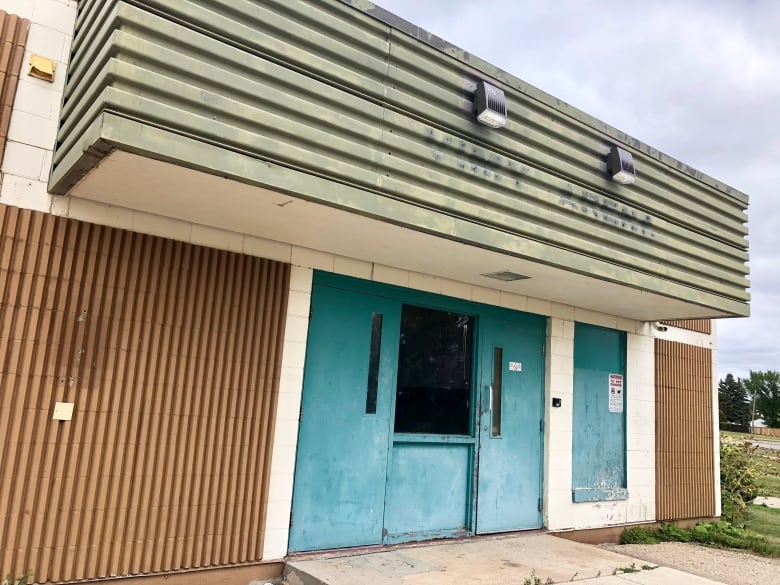Auditor general finds City of Winnipeg did not follow its own rules in sale of former Vimy Arena
City gave group behind Bruce Oake Recovery Centre preferential treatment, says Tyson Shtykalo

The City of Winnipeg did not follow its policy around selling surplus properties when it transferred the former Vimy Arena site to the province to develop what is now the Bruce Oake Recovery Centre, Manitoba's auditor general says.
In a report released Friday, Tyson Shtykalo said Mayor Brian Bowman's office gave the treatment centre preferential access to the site and information about the property and process, while other interested parties were told to wait until the surplus property was listed.
Because of that, those other parties didn't have the same chance to submit proposals to buy the arena, which meant city councillors weren't able to compare the province's offer with alternatives, the report said. The city also wasn't able to show it got the best value for the property.
The long-term treatment centre for men battling addiction, which opened earlier this year, is named after the son of broadcaster Scott Oake. Bruce Oake died of a heroin overdose in 2011 at the age of 25.
Shtykalo said his office's review found the city approached the province about the sale of the arena and land along Sturgeon Creek in west Winnipeg, which went against the city's own policy that requires government-to-government sales to be unsolicited.
The city ended up selling the site to the province for $1 in 2018, with the agreement it would then be leased to the treatment centre for $1 per year for 99 years.
The auditor general's report said the review found no documented rationale for using a government-to-government sale, which allowed the city to bypass a transparent sales process.
It also said the city and province had different explanations for why the transfer happened that way. The city said the province requested the property. The province, meanwhile, told the auditor general's office it became involved when the city asked for help transferring the arena to the not-for-profit organization.

The only documented purpose for avoiding a transparent sales process with full public access that the review turned up was in a provincial briefing note.
That note said "the city is required to offer the surplus property, through an open process, which would not guarantee the foundation (the treatment centre) would be the successful recipient."
The report came as a result of concerns the auditor general received through its citizen concerns line, Shtykalo wrote.
Similar concerns were raised in 2017 by two elected officials at the time. Then MLA Steven Fletcher and former city councillor Shawn Dobson said the consultation process behind the land transfer to the province was flawed and residents were not given ample notice of the city's plans.
Dobson called for a formal request for proposals to develop the land and asserted Bowman engaged in a "backroom deal" with the Oake family.
New policy, review of practices recommended
The report made two recommendations for the city.
The first is to produce a policy that clarifies procedures and controls over the sale of surplus land and buildings, from the time they're identified as surplus to their disposition.
That policy should include requirements for transparency and required access to property for all parties (if available), the report said.
It should also outline processes for government-to-government transactions and underline that it's never permissible to share non-public information with only one interested party.

The second recommendation is that the city review its practices so that when surplus property is being sold, council has the information it needs to determine the best value for the citizens of Winnipeg.
The rationale for any exceptions made needs to be documented and provided to council before they vote, the report said.
Recommendations wouldn't have changed outcome: city
The city's comments included in the report indicate its perspective on the arena transfer differs from that of the auditor general.
"All existing council policies were followed" by the public service, the city maintains in the report.
The city said the audit's recommendations "either represent minor modifications to city policy or require no action at all based on existing procedures" and "would not have materially changed the outcome of the sale transaction."
In an emailed statement on Friday, a spokesperson for Bowman said "the public service has confirmed all city processes were followed and appreciates the provincial auditor's recommendations for improvement, all of which have already been implemented or are in the process of being implemented."
"Given our community is currently in the grips of an illicit drug crisis, the mayor is proud to have voted with the majority of council to support the province of Manitoba's request for the Vimy Arena site to construct the Bruce Oake Recovery Centre," the statement said.
Meanwhile, the response from the provincial families department included in the report said it will act on any recommendations that pertain to Manitoba Housing, which was partly tasked with facilitating the transaction and leasing the property.
With files from Bartley Kives